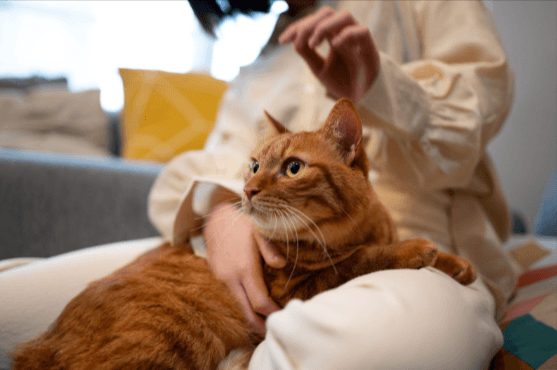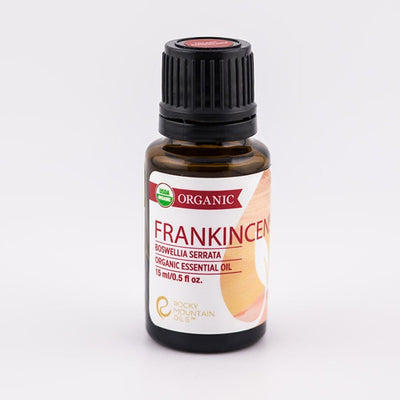Is Peppermint Essential Oil Safe for Cats? Unraveling the Truth
Essential Oils and Feline Safety
The allure of essential oils in today's wellness-focused lifestyle is undeniable. Among these, peppermint essential oil stands out for its invigorating scent and potential health benefits. However, cat owners face a dilemma when it comes to using these oils at home. Cats, unlike humans, have a unique physiology that affects how they interact with certain natural compounds, including those found in peppermint oil. This article aims to explore the safety of peppermint essential oil for our feline friends, balancing the therapeutic benefits against potential risks.

Understanding Peppermint Oil's Composition
Peppermint oil is derived from the peppermint plant, a hybrid of watermint and spearmint. Its main constituents, menthol, and menthone, are responsible for its cooling sensation and refreshing aroma. These compounds, while beneficial for humans in many ways, can be a source of concern for cat owners. The reason lies in the way cats metabolize these compounds. Cats have a limited ability to process certain chemicals due to the lack of specific enzymes in their liver. This limitation raises the question of whether peppermint oil, with its potent composition, is safe for cats.
Cats and Essential Oils: A Delicate Balance
Cats are known for their heightened sense of smell, which is far more sensitive than that of humans. This heightened sensitivity means that they can be easily overwhelmed by strong scents, including those of essential oils. Additionally, their grooming habits increase the risk of ingesting these oils, which can lead to internal toxicity. This toxicity is a crucial concern because of the potential for liver damage, respiratory difficulties, and other health complications.

Analyzing the Risks of Peppermint Oil
While there are anecdotal reports of peppermint oil repelling pests and calming anxious behaviors in cats, these benefits are overshadowed by the risks. Overexposure to peppermint oil can lead to a range of symptoms in cats, including difficulty breathing, muscle tremors, and lethargy. In severe cases, it can even lead to liver failure. These risks necessitate a careful assessment before considering the use of peppermint oil in a household with cats.
Is Peppermint Essential Oil Safe for Cats?
Peppermint essential oil is not safe for cats due to their sensitivity to certain compounds in the oil, which can lead to respiratory issues, skin irritation, and neurological symptoms. Signs of peppermint essential oil poisoning in cats include drooling, vomiting, and difficulty breathing. Instead of using peppermint oil, it's advisable to opt for cat-friendly essential oils, natural catnip, or ensure adequate ventilation when diffusing scents around your feline companion to prioritize their well-being.
Case Studies: Diverse Experiences with Peppermint Oil
The internet is rife with stories from cat owners about their experiences with peppermint oil. Some report no adverse effects, attributing a sense of calm and pest-free environment to its use. On the other hand, there are distressing accounts of cats suffering from symptoms of toxicity after exposure to peppermint oil, even in small amounts. These contrasting experiences highlight the unpredictable nature of essential oils when it comes to cats.
Safe Application Practices
For cat owners who still wish to use peppermint oil, strict guidelines must be followed. This includes using highly diluted forms of the oil and ensuring that the cat does not have direct contact with it. Moreover, continuous monitoring for any signs of distress or unusual behavior in the cat is crucial. Consulting with a veterinarian before introducing peppermint oil into a cat-friendly space is highly advisable.
Natural and Safe Alternatives
In light of the potential risks, seeking safer alternatives to peppermint oil is prudent. Essential oils like Lavender and Chamomile are generally considered safer for cats when used in moderation. Additionally, non-essential oil-based alternatives, such as pheromone diffusers, can offer similar calming benefits without the risks associated with essential oils.

Recognizing Toxicity Symptoms
Awareness of the signs of essential oil toxicity in cats is vital for any cat owner. Symptoms can range from drooling, vomiting, and diarrhea to more severe signs like tremors, difficulty in breathing, and lethargy. If any of these symptoms are observed, immediate veterinary attention is necessary.
Professional Insights on Essential Oils and Cats
Veterinary professionals often caution against the use of essential oils around cats. They emphasize the need for a risk-benefit analysis, considering the individual health and behavior of the cat. In some cases, veterinarians may suggest alternative methods for achieving the desired benefits of essential oils without exposing cats to potential harm.
Real-World Experiences from Cat Owners
Personal testimonies from cat owners offer valuable insights into the real-world implications of using peppermint oil around cats. These stories, ranging from positive to cautionary, serve as a reminder of the diversity in individual cat responses to essential oils. It’s best to find groups of cat owners who have tried using peppermint oil to their pets.
Choosing Cat-Friendly Products
When selecting products containing peppermint oil, cat owners should exercise caution. Products specifically formulated for cats and approved by veterinarians are the safest choice. Reading labels carefully to understand the concentration and composition of the essential oil in the product is essential.
Which essential oils are safe for cats?
When it comes to essential oils and cats, it's crucial to exercise caution. Generally, essential oils that are considered safe for cats include Lavender, Chamomile, and Frankincense when used in diluted form and under supervision.
However, it's essential to avoid oils like tea tree, eucalyptus, and citrus oils, as they can be toxic to cats. Always consult with a veterinarian before using any essential oils around your feline companion to ensure their safety and well-being.

How long does peppermint oil smell last?
The duration of peppermint oil's smell can vary depending on several factors, including its concentration, the method of application, and environmental conditions. In general, when used in a diffuser or diluted and applied to surfaces, the smell of peppermint oil can linger for several hours to a day. However, the scent will gradually diminish over time. To extend the duration of the fragrance, you can refresh it by reapplying or reactivating the oil as needed.
Is it safe to diffuse essential oils around cats?
Diffusing essential oils around cats can be risky as some oils, like tea tree oil and eucalyptus, are toxic to them and can cause respiratory issues, skin irritation, or even more severe health problems. It's crucial to exercise caution when using essential oils in a household with cats.
If you choose to diffuse oils, ensure the room is well-ventilated, use a diluted and cat-safe oil like Lavender, and closely monitor your cat for any adverse reactions. Consulting with a veterinarian for guidance on pet-safe essential oils and proper usage is advisable to prioritize your cat's safety and well-being.
FAQs: Addressing Common Queries About Peppermint Oil and Cats
Is peppermint essential oil toxic to cats?
Yes, peppermint essential oil can be toxic to cats. Due to their unique physiology, cats are more sensitive to essential oils and can suffer from toxicity if exposed to high concentrations or frequent applications.
Can peppermint oil be used to repel pests on cats?
While peppermint oil is sometimes touted as a natural pest repellent, it is not recommended for use on cats due to the risk of toxicity. There are safer, vet-approved alternatives for pest control in cats.
What should I do if my cat has been exposed to peppermint oil?
If your cat shows signs of distress after exposure to peppermint oil, such as drooling, coughing, or lethargy, seek immediate veterinary care. It's important to act quickly to prevent potential health complications.
Are there any safe ways to use peppermint oil around cats?
If you choose to use peppermint oil in your home, ensure it is highly diluted and out of reach of your cat. Avoid using it in areas where your cat spends a lot of time, and always monitor your cat for any signs of adverse reactions.
What are the signs of peppermint oil toxicity in cats?
Signs of toxicity include drooling, vomiting, diarrhea, coughing, difficulty breathing, and lethargy. In severe cases, tremors or seizures may occur.
Can diffusing peppermint oil harm cats?
Yes, diffusing peppermint oil can harm cats. The particles dispersed in the air can be inhaled by cats, leading to respiratory issues or toxicity.
Are there any cat-safe alternatives to peppermint oil?
Yes, there are safer alternatives such as pheromone diffusers and certain essential oils like lavender and chamomile, which are generally considered safer for cats when used in moderation. However, always consult with your veterinarian before introducing any new scent or product into your home.
Conclusion: Weighing the Pros and Cons
In conclusion, the use of peppermint essential oil in households with cats requires careful consideration. While there are potential benefits, the associated risks cannot be ignored. Cat owners must prioritize their pet's health and well-being, seeking advice from veterinary professionals and opting for safer alternatives when possible.




